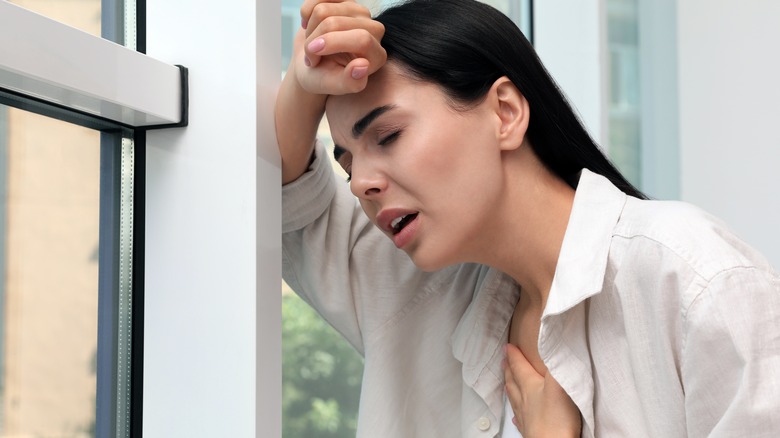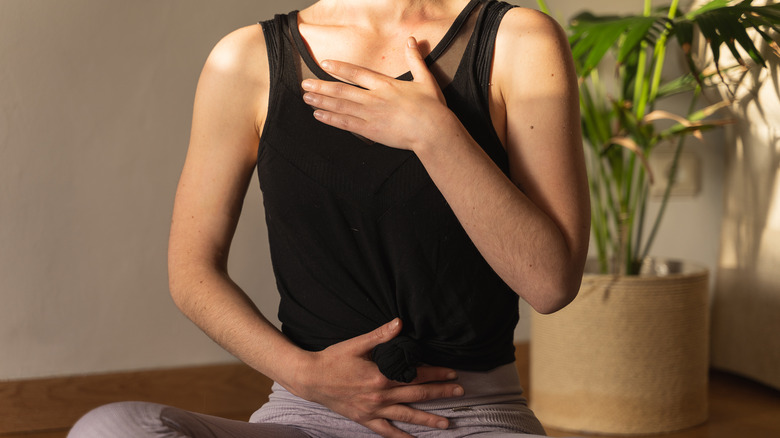Can Anxiety Make It Harder For You To Breathe?
Even if you're not among the one in five Americans who suffers from an anxiety disorder (per National Alliance on Mental Illness), you still might have anxiety-related moments in your life where you struggle to breathe. According to VeryWell Mind, shortness of breath, also known as dyspnea, can result from your body's natural response to what's going on in your mind. Shortness of breath can bring on an anxiety attack, or a panic attack can trigger dyspnea.
According to Healthline, your breathing quickens as part of your stress response and your heart begins to pump more blood into your muscles so you can fight or flee. To accommodate the rapid heart rate, your body needs more oxygen, so your breathing pace increases. However, in this state of stress, your breathing is also shallow, and you might find it difficult to control it. That's why it feels overwhelming and can aggravate your anxiety or panic (per VeryWell Mind).
What to do if anxiety is making it hard breathe
If you find yourself struggling to breathe during an anxiety or panic attack, VeryWell Mind suggests using mindfulness practices to help distract your mind from the fear of not getting enough oxygen. For example, you can repeat a short phrase telling yourself that you're going to be ok. It also helps to use your senses to notice several things around you. This gets you out of your reactive mind and into your logical mind, according to Healthline.
Breathing exercises such as diaphragmatic breathing can help train your body to relax while you're experiencing anxiety or panic. A 2017 study in Perspectives in Psychiatric Care found that practicing diaphragmatic breathing twice a day for eight weeks reduced anxiety levels and lowered heart rate and breathing rate.
To practice diaphragmatic breathing, lie on your back on the floor or on a bed. Place your left hand on your upper chest and your right hand just below your ribs. Inhale through your nose and let your diaphragm push your belly out so that your right hand rises. Your left hand and upper chest should remain still. On the exhale, purse your lips and use your abdominal muscles to blow all the air out slowly. Your right hand should fall to its original position. Practice at least 10 breaths at a time a few times per day (via Harvard Medical School).


